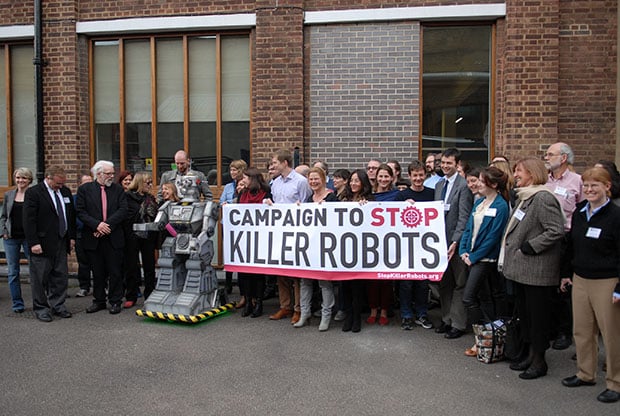South Korean University Denies Development Of Killer Robots After Facing Boycott From AI Experts
The fear was that KAIST’s expertise in AI would be used to help Hanwha create autonomous "killer robots" that would be sent out into the battlefield. The pair is working on a "Research Center for the Convergence of National Defense and Artificial Intelligence" that will be housed on KAIST's campus.

The joint efforts are aimed at "[developing] artificial intelligence (AI) technologies to be applied to military weapons, joining the global competition to develop autonomous arms." Hanwa is no stranger to controversy, as the company produces cluster munitions, which are considered forbidden weapons by the UN Convention on Cluster Munitions.
More than 50 academic peers (from nearly 30 countries) signed an open letter imploring KAIST to end its collaboration with Hanwa, or they will no longer cooperate with the university. The list of signatures contains professors from around the globe, including U.S. representatives from the University of Maryland, University of Michigan and Cornell University.
"At a time when the United Nations is discussing how to contain the threat posed to international security by autonomous weapons, it is regrettable that a prestigious institution like KAIST looks to accelerate the arms race to develop such weapons," reads the open letter. "If developed, autonomous weapons will be the third revolution in warfare. They will permit war to be fought faster and at a scale greater than ever before."
"This Pandora's box will be hard to close if it is opened."
However, it appears that the open letter got KAIST’s attention. While the university doesn’t appear to be backing down from its collaboration with Hanwa, KAIST President Shin Sung-chul said that any fears are unwarranted. The university will not develop autonomous killer robots and will maintain meaningful human control over weapons systems.
"It sets a very clear precedent for the future," said Professor Tobe Walsh, who welcomed the comments from the KAIST president. Walsh was one of the original signers of the petition. "I hope now that KAIST will lobby the Republic of Korea to call for meaningful human control at next week’s UN meeting on the topic of killer robots. Such small steps will eventually lead to an outright ban."

